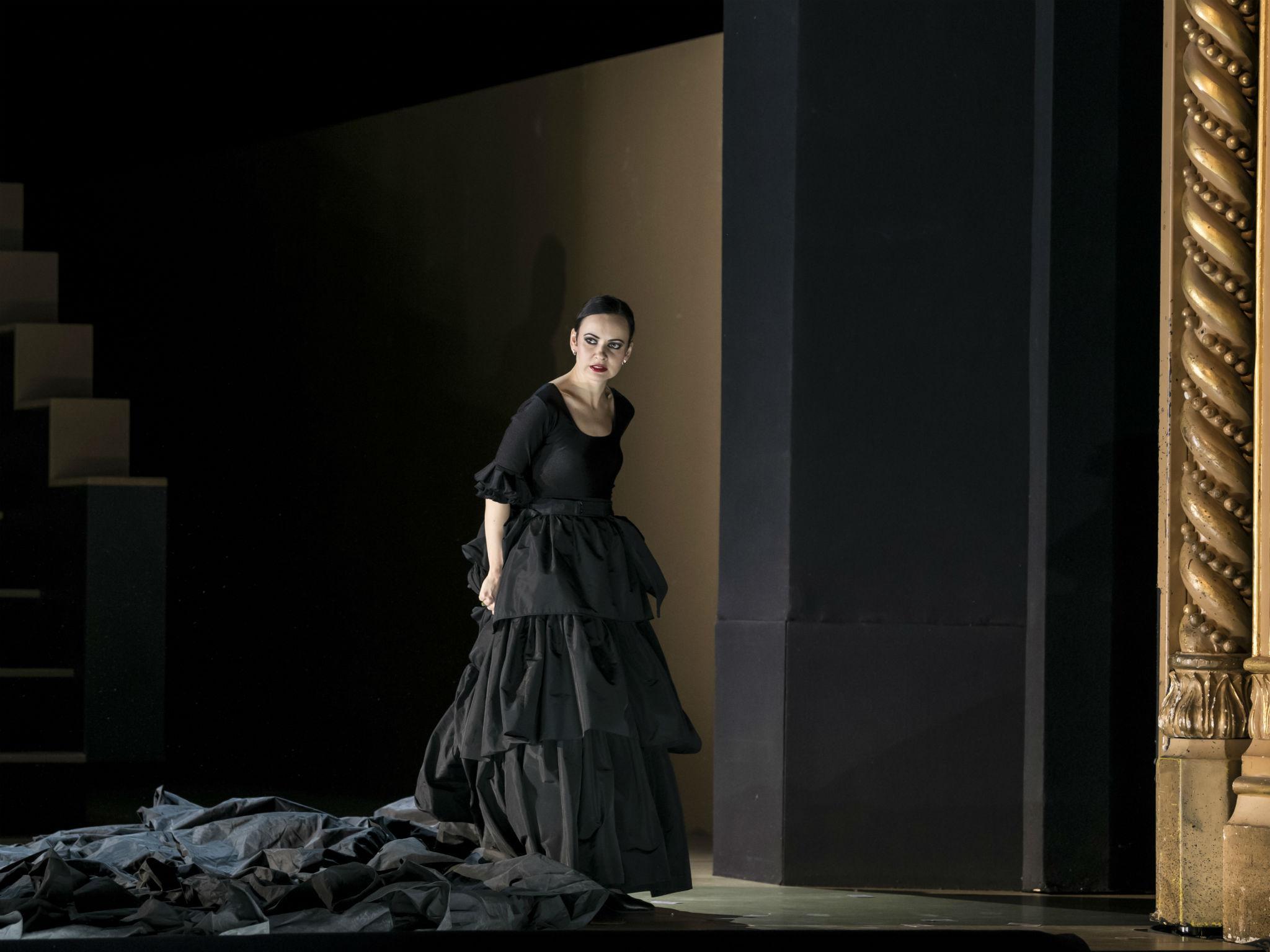Carmen, Royal Opera House, London, review: Anna Goryachova as Carmen deploys her mezzo voice like a weapon of war
Barrie Kosky directs this radical new production of Bizet's 'Carmen'

All Barrie Kosky’s productions are extreme: wacky, bawdy, or hallucinatory as the piece demands. For Carmen he’s conflated musical elements from some of the many different versions of the score, and he’s replaced the usual recitatives with the offstage voice of a young female narrator. He’s determined we shall experience the opera not as a piece of fake-Spanish exoticism, but as a sophisticated product of Offenbach’s Paris. And he’s stripped the stage bare.
The set is simply a giant staircase, signalling the Busby Berkeley manoeuvres which will indeed later materialise on it. Our first view of Carmen is as an androgynous toreador who strides round the stage while the voiceover delineates the conventional male requirements for female beauty. And when Micaela is set upon by a horde of males at the (invisible) factory gate, a heavy message becomes clear. From then on the messages come thick and fast, and not always coherently. Carmen’s second appearance – in an ape’s costume – may hark back to a moment in Bob Fosse’s Cabaret, but has no evident point here, any more than do the handfuls of rose petals which the principals periodically hurl at each other. If this drama takes place anywhere, it’s in Berlin.
Kosky and his team play around with the score to such an extent that the ears are slightly disorientated, but the voice-over is a device which works well. On the other hand, the showy choreography which dominates the action is tiresomely clichéd: less emphasis on this, and more attention to the physical guts of the drama, would have been better. Morales and Zuniga are very under-characterised, and the duel scene, which misfires lamely, seems hardly to have been directed at all.
The climactic final scene is one of the best-directed, yet Kosky chooses to follow it with an ironical coup de theatre (I won’t reveal) which trashes everything which has gone before. Brechtian? Postmodern? Who cares? This undermining gesture symbolises the uphill struggle the singers must have to project the usual pleasures of opera, as in some cases they do.
There are some superb moments – like the playing-card trio – and if Kostas Smoriginas’s Escamillo is short on charisma, Francisco Meli’s Don Jose makes up for it with a pathos which touched the hearts of the first-night audience. Kristina Mkhitaryan’s awkwardly characterised Micaela is sung with nuanced delicacy, and, when allowed to stay still for a moment, Anna Goryachova’s psychologically shape-shifting Carmen – imagine her kicking a rival lying on the ground, like an Eighties boot-boy – deploys her mezzo voice like a weapon of war. The chorus are magnificent, and in the pit Jakub Hrusa finds lovely lights in the score.
Until 16 March (roh.org.uk)
Subscribe to Independent Premium to bookmark this article
Want to bookmark your favourite articles and stories to read or reference later? Start your Independent Premium subscription today.

Join our commenting forum
Join thought-provoking conversations, follow other Independent readers and see their replies